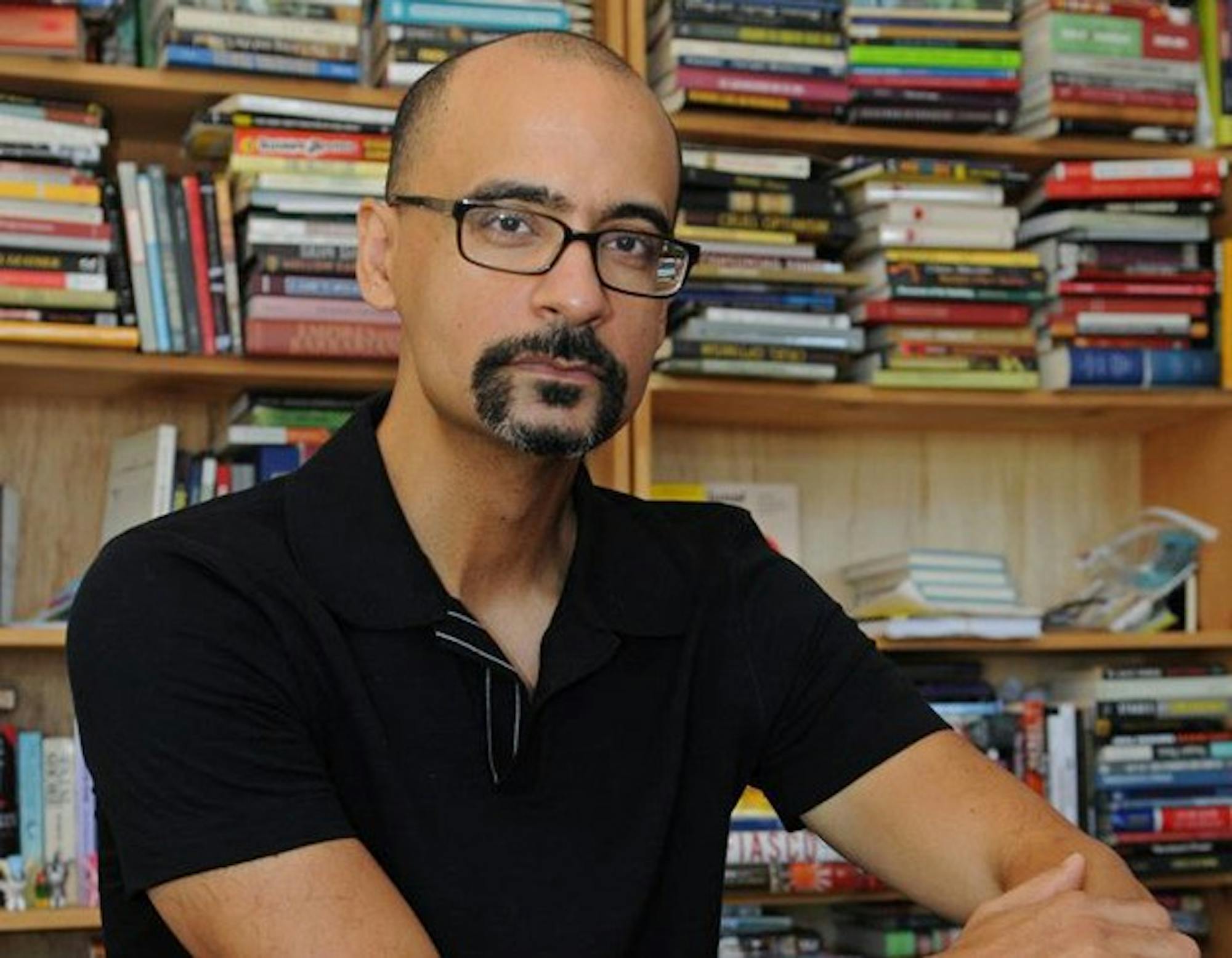The cover, emblazoned with a partial heart seemingly constructed of blurry, Lego-like pieces, might make some readers skeptic, and the title reminds the reader of a "She's Just Not That Into You" type of literary genre. Diaz' book, however, is a far cry from the American sentimentalism that is often used as a stepping stool to the top of the bestseller list.
Instead of finding Diaz's book a sappy chick-flick novel with a faux intellectual cover, I found a starkly honest coming-of-age story that portrays the imperfections of life and love through the eyes of inherently flawed, tragic characters.
The novel consists of many short story-like chapters that paint a very specific scene of Dominican life in New Jersey. Diaz brings back the dangerous and complex character Yunior, who narrated Diaz's previous novel, "The Brief and Wondrous Life of Oscar Wao" and who also starred in "Drown."
"This Is How You Lose Her" features many narratives, but the novel is predominantly Yunior's story and explores the many complicated relationships of his adolescence and early adulthood.
"Okay, we didn't work, and all memories to tell you the truth aren't good," Diaz wrote in the epigraph, quoting the author Sandra Cisneros. "But sometimes there were good times." The epigraph feeds the novel's search for the pockets of fleeing love in a complicated world.
Yunior's stories are told sporadically and jump both backward and forward in time and location in the struggle to explain the many relationships that influence his outlook on life and love. The most formative relationship that affects his ability to understand commitment is with his father, who relocates Yunior's family to the United States. Yunior's father often leaves him in the car while he visits his many girlfriends, eventually leaving forever with one of them.
Yunior's brother Rafa, suave yet damaging and abusive, dies from cancer before his brother's eyes and spends his last days emotionally torturing his own family. This is another significant relationship that affects Yunior's inability to form lasting relationships as an adult.
The reader can see how damaging these relationships have been to Yunior, who only finds a strong relationship in his youth with a high school English teacher who makes him feel wanted for the first time.
Yunior's infidelity with his many girlfriends is presented as almost unavoidable due to his unstable past. "This Is How You Lose Her," however, focuses on the one girlfriend that Yunior is unable to get back or get over.
Overall, the book handles love in an unexpected way. It does not try to conquer or explain it, but simply shows a side often pushed under the rug. This is the painful part that affects normal people who make normal mistakes and encounter tragically normal misfortunes.
Interspersed with Yunior's narrative are the stories of several other characters who experience similar relationship issues. Yasmin, who washes bloodied sheets in a hospital for minimum wage, secretly reads her boyfriend's letters that were written by his wife in the Dominican Republic because they make her feel better.
Other notable characters that fill the side stories of the book include Paloma, who won't let boys touch her because she is terrified of messing up her one chance to go to college and leave her life behind, and Ana Iris, who listens to her children's voices become increasingly unfamiliar over the phone as she calls them from America.
Every character tells a story of imperfect love, and Yunior offers many such stories. He presents himself to the reader in frank and honest terms. "I'm not a bad guy," Yunior said. "I know how that sounds defensive, unscrupulous, but it's true. I'm like everybody else: weak, full of mistakes, but basically good."
Diaz's writing is sharp, electrified and a little bit rough around the edges, but refreshingly honest. The novel occurs off the page and on the sidelines of the written word: The true action happens in the unread love letters that are tossed aside and in the words left unspoken by a Mother who allows her son to steal from her.
It is the kind of story that Hemingway would have written if he were alive, and Latino, perpetually single and living in Newark, N.J. The book begins with heartbreak and ends with heartbreak, filled with beginnings that squash happy endings into oblivion. Yunior himself is aggravatingly flawed, but he shows himself to be incredibly genuine in the final chapter, which poignantly details his miserable later life after cheating one too many times.
As he hopelessly plunders forward, he commiserates with the reader about his own future, admitting that, "You know in your lying cheater's heart that sometimes a start is all we ever get."
This book is a window into a side of love that is never spoken about because most people like to pretend it does not exist. As a reader, my perspectives were widened in a way that no sappy fictitious conquering of love could ever accomplish.




